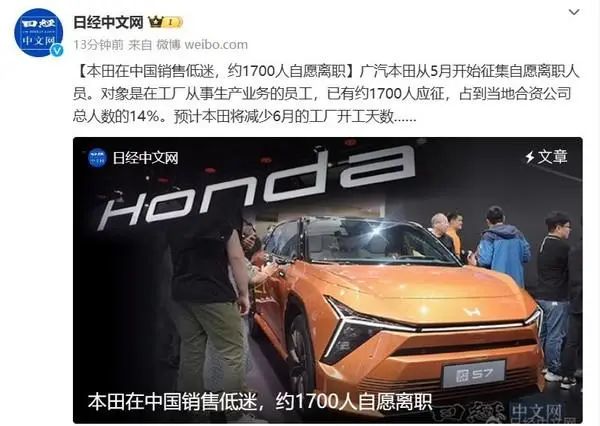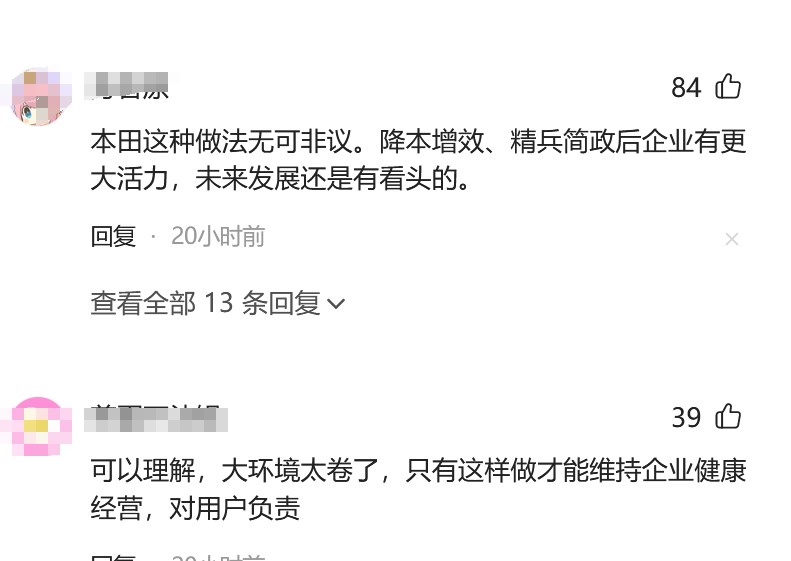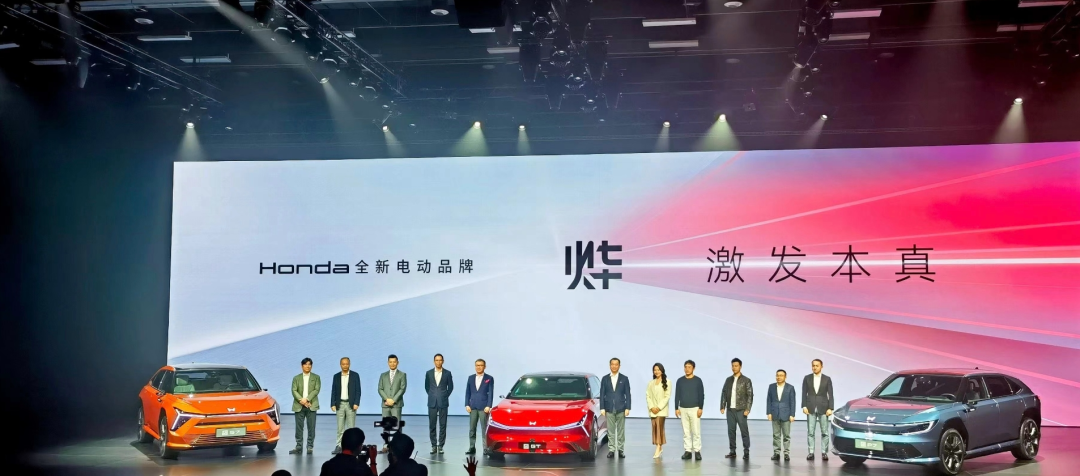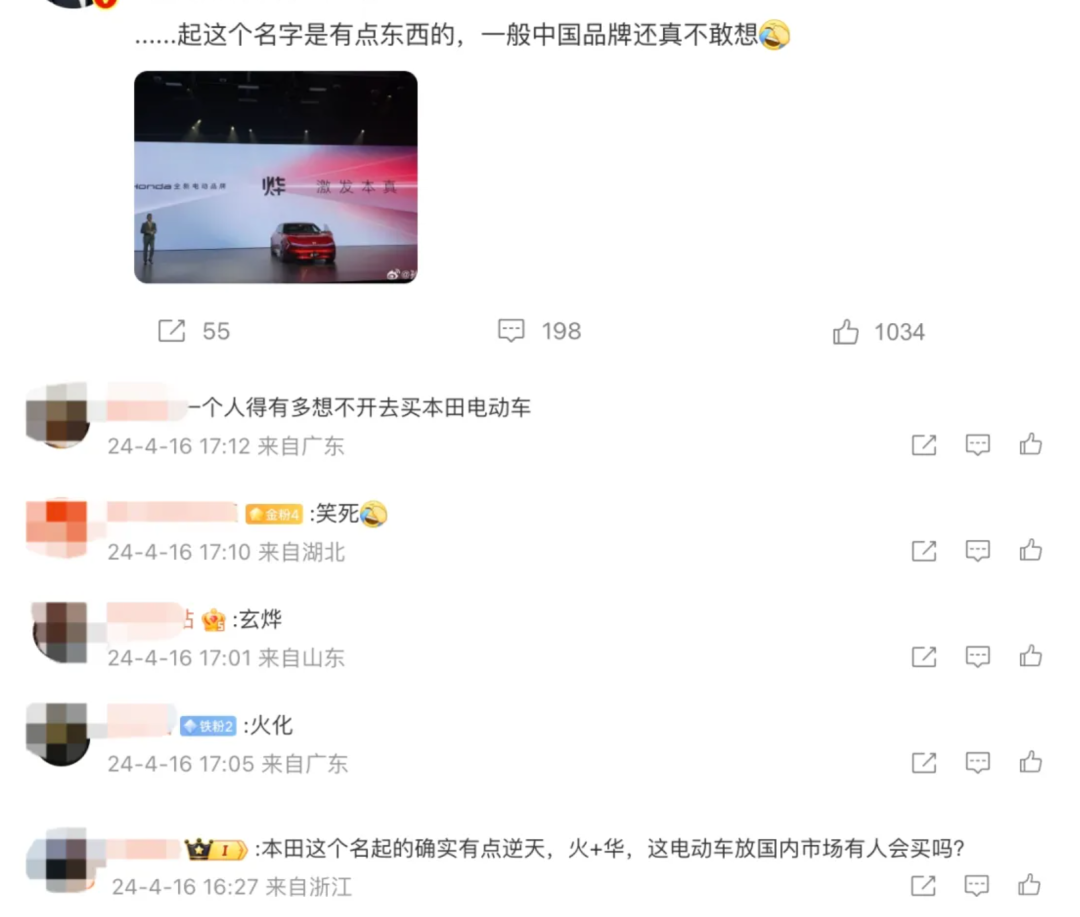Another car company presses the “layoff button”! On May 15, GAC Honda started reducing its production team, with around 1700 people reportedly “voluntarily resigning”.
Netizens commented, “Enterprises are not philanthropists, controlling development costs is normal.” “Guangben’s several cars are selling well, Accord, Xingge, and Haoying are all in the top tier.” “If you voluntarily resign, why should you be compensated?” Some also said, “Looking at it from a different perspective, this is beneficial for business stability, unlike other car companies, losing money and still laying off employees.”
Guangqi Honda accelerates strategic transformation to ensure sustainable operation. Measures include not renewing contracts for some employees whose first labor contract expires in the production field, voluntary negotiation to terminate labor contracts. Guangqi Honda will provide economic compensation in accordance with the law and regulations for voluntary termination of labor contracts. Approximately 1700 people voluntarily resigned and were compensated with “N+2+1.8”. Guangqi Honda began soliciting voluntary resignations among its production employees this month due to sluggish sales in China. Approximately 1700 people have volunteered to resign, accounting for 14% of the total number of employees in the joint venture company. The layoffs this time did not target a specific production line, but due to declining production, employees have been transferred several times. Guangqi Honda will provide “N+2+1.8” compensation for departing employees, with “N+2” being standard compensation and 1.8 months possibly being a bonus. This round of layoffs does not involve management positions, but it is expected to happen soon, estimated to be the turn of management positions next year. It is worth noting that last year, Guangqi Honda was reported to have laid off employees for the first time in its 25-year history. Honda decided to cut about 900 contract workers from Guangqi Honda, accounting for 7% of the approximately 13,000 employees at that time, due to a rapid shift to the electric vehicle market. Guangqi Honda stated that this adjustment is a phase in production and involves dispatched workers. They terminated the personnel dispatch agreement with the labor service company and provided economic compensation in accordance with the law and regulations. The individual stated that this adjustment will not affect GAC Honda’s future electrification and intelligence strategy. Honda’s sales in China have been declining for three consecutive years. Previously, Japanese cars had a considerable market share in China due to their high resale value, fuel efficiency, and low maintenance costs. However, with the increasing competition in the new energy vehicle market, independent brands have rapidly emerged, posing a greater challenge to traditional joint venture brands that heavily rely on fuel vehicles. In terms of sales, after reaching a peak of 1.627 million units in 2020, Honda’s sales in China have declined for three consecutive years. In 2021, 2022, and 2023, its sales were 1.5615 million units, 1.3731 million units, and 1.2342 million units respectively, with year-on-year decreases of 4.0%, 12.07%, and 10.12%. The latest data shows that Honda’s cumulative retail sales in China in April were 73,800 units, and from January to April this year, Honda’s cumulative retail sales in China were 280,700 units, a 10.9% decrease compared to the same period last year. Among them, GAC Honda’s cumulative sales were 141,800 units, a 19.01% decrease. Due to the continuous decline in sales, Honda plans to reduce its sales target in China by 13% to 1.06 million units this year. In recent times, the retail market share of Japanese joint venture brands in China has fluctuated, reaching a low of around 16%. In April, mainstream joint venture brands sold 450,000 units, a 26% year-on-year decrease and a 9% decrease from the previous month. Among them, Japanese brands had a retail market share of 15.2%, a 3.6 percentage point decrease year-on-year. Industry insiders believe that the lag in the introduction of electrified products and the weak product lineup are important reasons for the decline in sales of Japanese car companies in China. Industry insiders point out that the rapid rise of electric vehicles in China has had a comprehensive impact on traditional cars, involving production modes, market competition, supply chains, employment, and energy structures. Japanese car companies have certain technical advantages in the field of new energy vehicles, but their strategic deployment in the Chinese market seems insufficient, affecting their market position in the face of increasingly fierce competition from domestic manufacturers like BYD. How Japanese car companies can solidify and expand their market position is a test of wisdom and strength. “Joint ventures have indeed lagged behind in the layout of new energy vehicles, failing to keep up with the changes in the Chinese automobile market,” a senior executive of a joint venture car company told 21st Century Business Herald reporters. In the past three years, cars produced by Chinese domestic brands have not only met the country’s policy requirements but also consumer demands. On the other hand, new energy vehicles produced by joint venture brands have not kept pace with the laws and regulations. Although we have adapted to the new energy transition through hybrid technology, we cannot get green license plates, nor do we meet the basic network connectivity needs of young Chinese consumers, still overly pursuing traditional safety standards. “We recognize that Honda’s layout in the new energy product camp is somewhat slow compared to the market,” said Masayuki Igarashi, Executive Vice President of Honda R&D Co., Ltd., China Headquarters, General Manager of Honda R&D Investment Co., Ltd., and General Manager of Honda R&D Technology Co., Ltd., in an interview with 21st Century Business Herald reporters. Japanese car companies are in a hurry to launch multiple new cars, with Honda announcing an investment of over 1 trillion yen. In order to cope with the rapidly changing Chinese automobile market, Honda, after launching the pure electric vehicle brand “e:N” in the Chinese market in 2021, has introduced a new electric brand “Yu”. The “Yu S7” and “Yu P7” models will be launched by the end of 2024.
Recently held at the Beijing Auto Show, Honda’s pure electric vehicle brand e:N launched its second model – the e:NP2 under GAC Honda, while Dongfeng Honda announced the pre-sale price of the e:NS2 and plans to launch it in June. “Honda will quickly take measures to adapt to the changing environment due to the shrinking market share of traditional fuel vehicles and the expanding market share of new energy vehicles in China,” said Masayuki Igarashi to 21st Century Business Herald reporters. Honda is currently facing two urgent challenges: responding quickly to the expanding market share of new energy vehicles and considering adjustments in production capacity due to the declining sales of traditional fuel vehicles. Honda’s recent financial report shows that in the 2024 fiscal year, Honda will invest 1.19 trillion yen in research and development expenses, exceeding 1 trillion yen for the first time, with most of the expenses allocated to the research and investment of pure electric vehicles. Hiroshi Yamaguchi, President of Honda R&D Co., Ltd., emphasized, “Electrification and software require large-scale development investments.” The global wave of intelligence is reshaping the perception of foreign consumers, with Japanese car brands focusing on cooperation in the field of intelligence with Chinese technology companies. Nissan signed a memorandum of understanding with Baidu to conduct feasibility studies on strategic cooperation in artificial intelligence and smart car fields; Toyota announced cooperation with Tencent and is expected to release jointly developed new products by the end of this year. Honda executives, in an interview with 21st Century Business Herald reporters, stated that many Chinese companies are leading in the fields of intelligence and autonomous driving. Honda will adopt an open attitude and actively cooperate with excellent Chinese manufacturers in the field of advanced technology. SFC Editor Jiang Peipei Intern Huang Lihong 21 Recommended Reading 21 Exclusive | After a major restructuring, Ideal Car initiates personnel optimization, exceeding 18% Too sudden! Controlling shareholder is executed, once a billionaire with a wealth of 20 billion! 360,000 stockholders in the automotive industry are sleepless as the cross-border battle escalates again! Why is BYD doing this?





